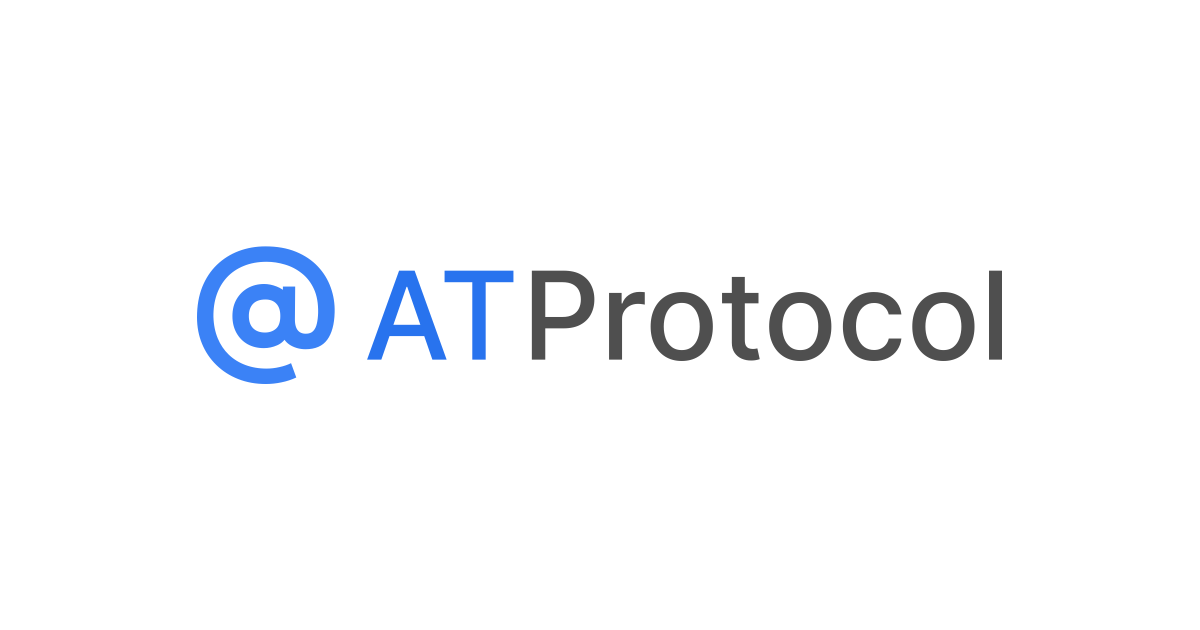Great ATProto blog post on the reasoning behind their design architecture
-
But what about the DIDs, the things used to actually identify accounts within the ATproto ecosystem:
But Bluesky has developed its own DID method, did:plc. Today, did:plc stands for "Public Ledger of Credentials", however it originally stood for "Placeholder DIDs", with the hope of replacing them with something else later. The way that did:plc works is that Bluesky hosts a web service from which one can register, retrieve, and rotate keys (and other associated DID document information). However, this ledger is centrally controlled by Bluesky.
-
Instead of being a patronizing ass, how about let's have some discussion about
The ultimate goal of this subreddit is a fully decentralized social media landscape.
And how ATProto is not accomplishing this / what they can be doing differently than what's outlined in their blog post
Or a counter argument to
Fracturing discussion between ActivityPub and ATProto helps no one, especially in niche communities like this.
A community to talk about the Fediverse and all it’s related services using ActivityPub
-
This post did not contain any content.
A few days ago I posted the same question on X, Bsky and Mastodon. I've received more interactions and responses on Mastodon than the other two combined.
-
A few days ago I posted the same question on X, Bsky and Mastodon. I've received more interactions and responses on Mastodon than the other two combined.
Its nice yeah. Feels like more real people

-
I'm not sure that your reply is directly related to my comment. The full sentence I quoted is "Under these definitions, Bluesky and ATProto are not meaningfully decentralized, and are not federated either." by Christine Lemmer-Webber, but Daniel Holmgren talked more directly about "decentralised distribution of data".
Because of what I quoted, I don't think that "Bluesky" or "ATProto" are decentralized or federated, so it's extremely unlikely that I'll interact with them anytime soon. The particular reason that they are not decentralized or federated is not really interesting to me.
To get specific: it is a significant issue for me if "everyone can access the data but before it reaches the end users it goes through centralised applications". A "centralised application" is able to restrict my ability to contact other people, whereas with a federated and/or decentralized/distributed system, it's more likely that I will be able to contact someone that I want to communicate with. For comparison, consider how people would feel if using the United States Postal Service meant that all physical mail had to pass through the District of Columbia or if sending an email message required interacting with
BBN-TENEXAjust because that was the first machine to be capable of sending networked electronic mail. In the ideal case, the recipient of a message I send would not have to coordinate with me at all before they receive the message: "The first use of network email announced its own existence."my original point was more that atProto maybe was inspired by the "decentralized distribution of data" that p2p has
In my brain i somehow got the idea that anyone could theoretically access the data without going through bsky and trying to write my guess down i somehow got spun up on that paragraph
sorry if i got you wrong again
-
Yep. You can even go right into the source code and find out if it is truly decentralized. And right now, ActivityHub is and ATProto inst. Maybe at some point it will be (which I hope will happen regardless of bluesky) but at the moment, it is not.
Both have some P2P components but one of the big ones:
"The answer, if you guessed it, is centralization. All direct messages, no matter what your Personal Data Store is, no matter what your relay is, go through Bluesky, the company." which you can see more clearly starting here: https://github.com/bluesky-social/atproto/blob/01f2bd13eb62a0aef43bfdad7594dd69f58bc9f5/packages/pds/src/pipethrough.ts#L94
-
They support did:web too if you don't like did:plc
-
But what about the DIDs, the things used to actually identify accounts within the ATproto ecosystem:
But Bluesky has developed its own DID method, did:plc. Today, did:plc stands for "Public Ledger of Credentials", however it originally stood for "Placeholder DIDs", with the hope of replacing them with something else later. The way that did:plc works is that Bluesky hosts a web service from which one can register, retrieve, and rotate keys (and other associated DID document information). However, this ledger is centrally controlled by Bluesky.
This is false, they support did:web which ties your identity to ownership of a DNS name (which is its own can of worms, but not PLC).
The other part is that you still have to register it to get indexed by the relay, so people can read your posts without querying your server directly (which is possible but discouraged).
-
This is false, they support did:web which ties your identity to ownership of a DNS name (which is its own can of worms, but not PLC).
The other part is that you still have to register it to get indexed by the relay, so people can read your posts without querying your server directly (which is possible but discouraged).
I spent a couple hours trying to create an account on pds.flamingos-cant.xyz that uses a
did:webfollowing the instructions here and the account at the end ended up with adid:plc, so IDK how you create a PDS with adid:webbut it's clearly not something they put a lot of effort into supporting. -
The ATProto equivalent of "Fediverse" is Atmosphere.
Or Walled-Garden

-
System shared this topic



